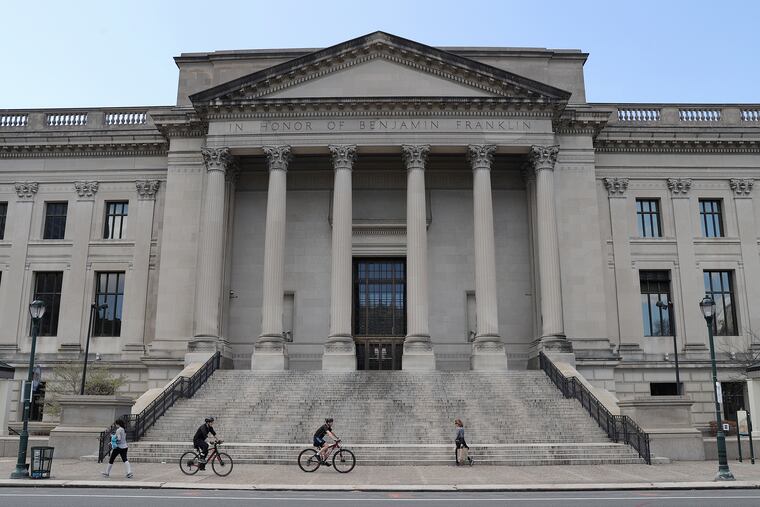Franklin Institute lays off all part-time workers and 36% of staff
The region's premiere science museum is more dependent on revenues from shows than other similar institutions.

The Franklin Institute on Thursday laid off all of its part-time staff and 36% of its full-time staff across all departments, a signal of the spreading economic impact of the coronavirus pandemic.
Larry Dubinski, president and chief executive of the science museum on the Benjamin Franklin Parkway, said Friday that the large cuts were made to help ensure financial stability amid the uncertainty of the burgeoning health crisis.
The museum has been closed indefinitely since March 13.
Just a week ago, on March 20, the Please Touch Museum informed its staff that 40 members would be placed on unpaid leave and that 11 were being laid off. The museum had about 70 staff members before the cuts. Please Touch is closed until May 18, with the date subject to review, according to Trish Wellenbach, president and chief executive.
About 19 Please Touch staffers from all departments remain employed to maintain the organization and Memorial Hall in Fairmount Park, where the museum is located. A group of eight workers will rotate through the building to perform maintenance and do whatever is necessary to keep the historic building, owned by the city, functioning and operational.
Wellenbach said Friday that the museum is committed to bringing back furloughed workers “as soon as restrictions are lifted.” All furloughed workers, she said, will retain full health-care benefits for the length of furlough.
At the Franklin Institute, staffers who remain will take pay cuts ranging up to 30% — with those at the top of the scale facing the largest reductions, according to Dubinski. Those making less than $50,000 a year will not face any salary reduction.
All full-time, union, and scheduled part-time employees affected by the layoffs have received two weeks’ pay and will be paid for accrued vacation time. Dubinski said that employees “will receive severance packages based on tenure with the organization,” including health insurance costs through April.
A spokesperson for the institute said that 10 part-time, 55 full-time, and 131 temporary or seasonal workers had been laid off. That leaves the Franklin with a staff of 96. It has an annual operating budget of about $35 million.
Dubinski would not comment on the potential revenue loss. He noted that spring is when the organization typically collects a lot of its revenue.
“From that March 13 date [that the institute closed] to when we reopen, we’re looking at zero,” he said, referring to income. The loss, he said, would be "millions — the number is unimaginable.”
“It’s absolutely heart-wrenching for me to part with friends, with colleagues,” Dubinski said.
Several employees said that there was little or no notice about the layoffs, with many learning that they were without a job when they were blocked from their email accounts.
“Yep, they shut off my ... email address about six hours before they called to tell me i was fired, so i knew it was coming. filing for unemployment tmrw," said one Twitter user, who asked that his name not be used.
Dubinski said that every laid-off employee was called personally beginning as early as possible Thursday morning. The calls continued throughout the day — employees are all working remotely — until everyone was reached.